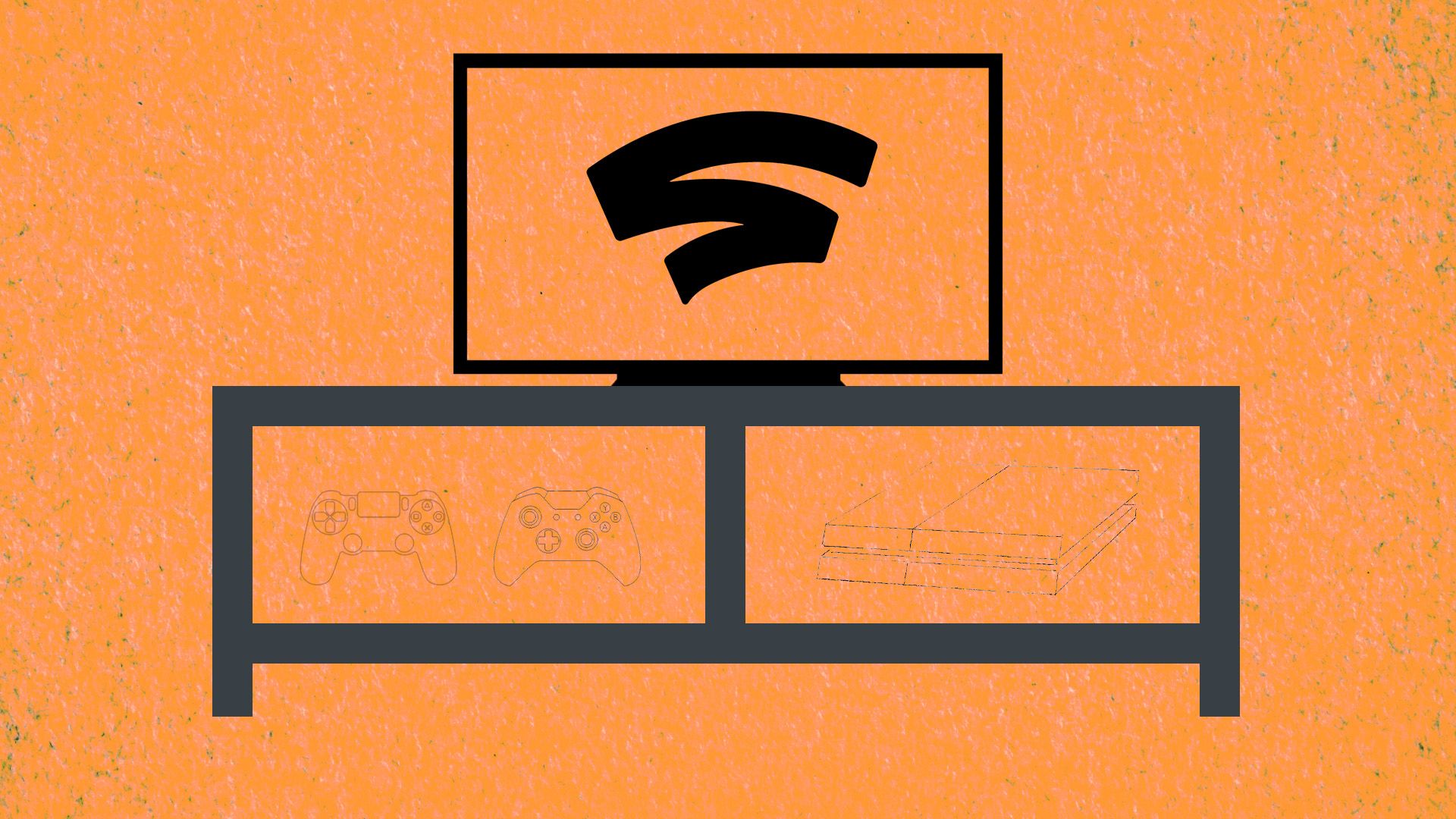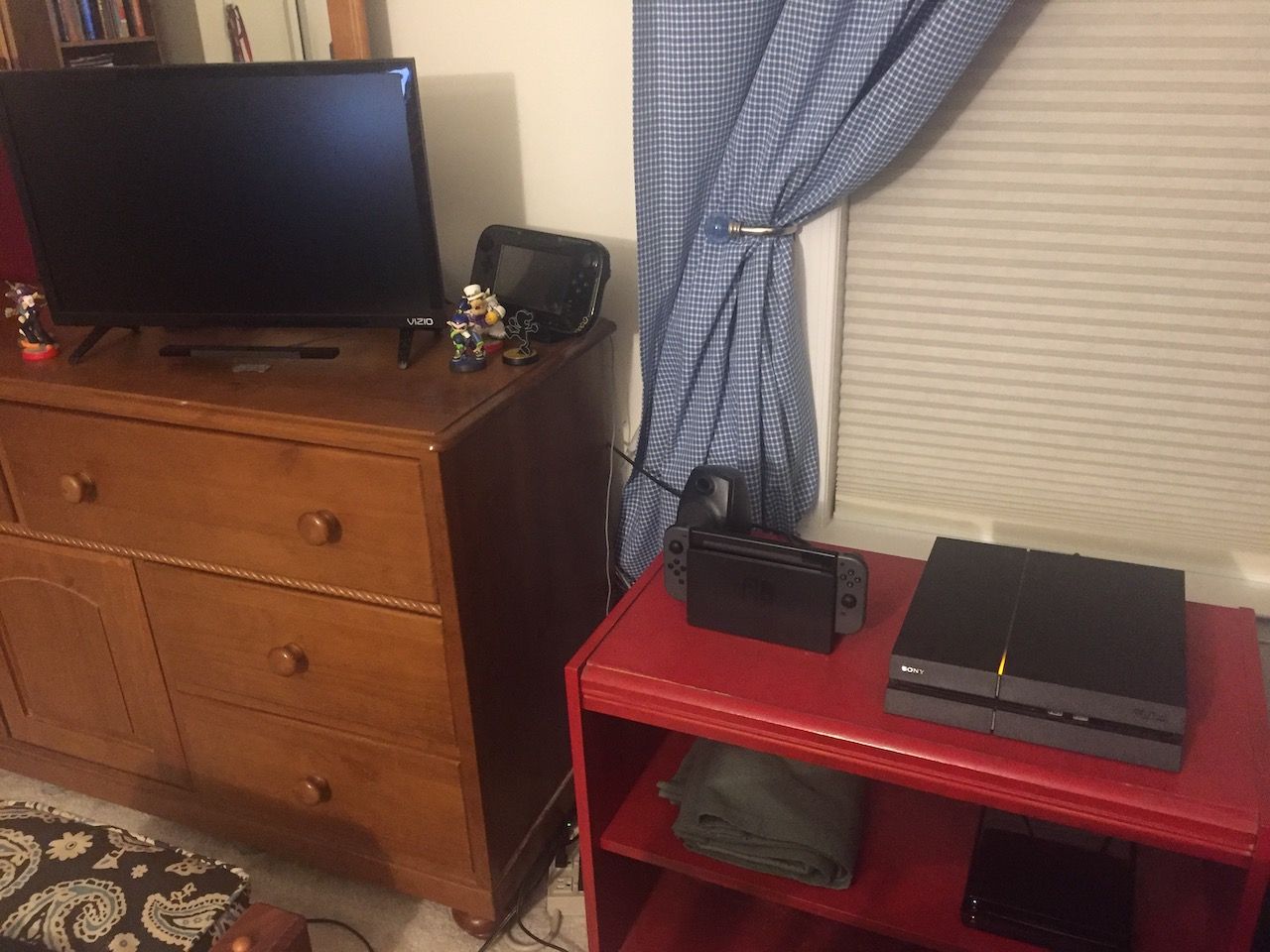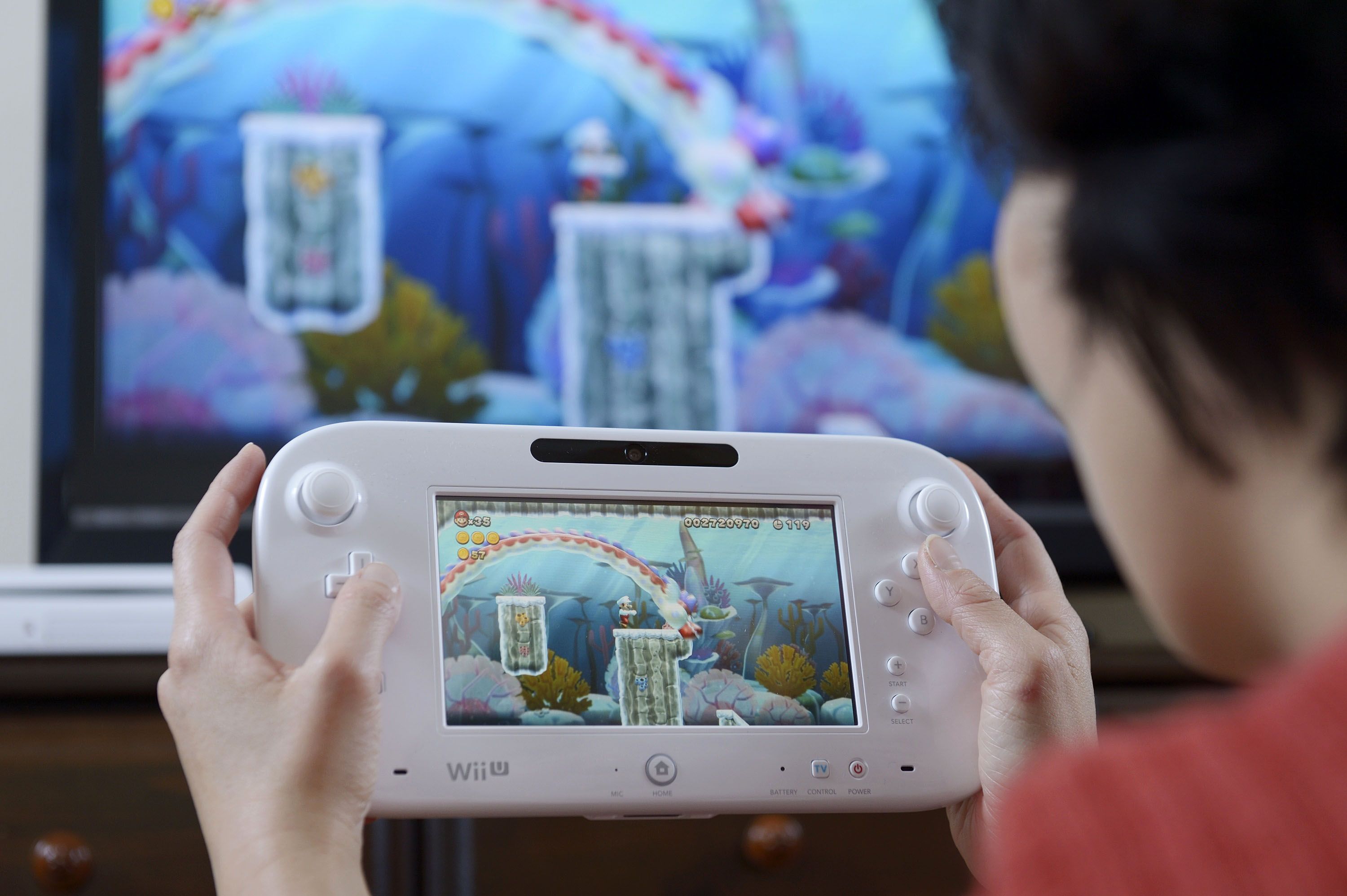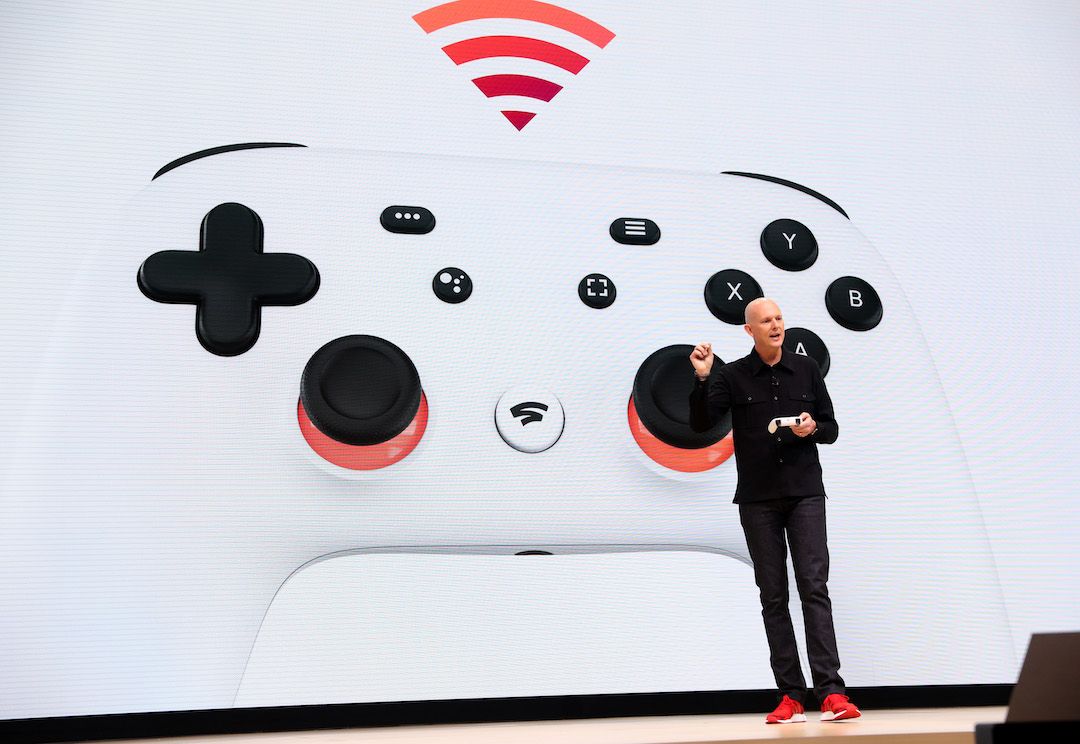It is no secret that video game companies are betting on streaming as the future of the industry. With Google being perhaps the loudest and most mainstream company in that camp by announcing their plans for Stadia, the reality of that possible future is slowly seeping in. It is exciting for pushing technology forward and terrifying due to the larger implications with ownership and preservation of video games.
As soon as I stopped spiraling into an existential and cynical loop after Stadia was announced, my thoughts reverted back into something more personal: how ridiculously crowded my house is with video game home consoles. With a potential vision of the future calling for a lack of boxes and all of our games in the cloud, I reflected on how important these boxes were in building my own personal spaces. Will something be lost on the way while transitioning to an all-digital future, or could this change possibly be for the best?
At some point after that Google event, I spun around in my chair and scanned my untidy bedroom. I still had boxes on the floor, dust covering my dresser, and overstuffed shelves. I then looked to my video gaming setup: a three-tier shelf with my Nintendo Switch dock and PS4 on top, my Wii U and space where my Xbox One S would be (I let a friend borrow it for Kingdom Hearts III) in the middle, and assorted items on the bottom. It was the only part of my bedroom that looked like it had any consistent maintenance, care, and most importantly, pride.
[pullquote]"Will something be lost on the way while transitioning to an all-digital future, or could this change possibly be for the best?"[/pullquote]
My shelf next to the dresser is filled up with Wii, DS, 3DS, Xbox 360, PS4, Switch, and Xbox One games, with little space left. It was a reminder of a certain stubborn habit of mine—physical over digital. For one reason or another, video games were the only medium in which I followed this philosophy. By now, I had fully switched to buying movies digitally, and purchasing eBooks on my Kindle.
As I began a spring cleaning quest for minimalism, my video game collection stuck out.
Visually, my stacks of consoles and game cases aren't very impressive to look at, but as I began cleaning out my drawers, dusting off every square inch of my room, and Marie Kondo-ing my space by tossing objects and trinkets that I had hoarded for over a decade, my video game setup remained the centerpiece of everything. To me, that physical space just meant too much to me. Not only did I appreciate the value of lending games to friends, but there was nothing like holding a game case and admiring the cover art. Back in the day, I would always spend minutes on end taking out the instruction manual and absorbing all of its content before I even started up the game.
To me, it was my way of preserving the past, but I began having second thoughts about the future. Not too long after the Stadia announcement, we received news about the next PlayStation console. While new console cycles aren't the least surprising, the concept of time has worked in a way that the PS4 and Xbox One era still feels like a novelty. Would I have space for another gigantic box on that shelf, another outlet for power and another HDMI port on my television? (The answers respectively are probably no, and no.)
I quietly took inventory in my head and made a realization: I have too many damn boxes in my family's home.
Most modern video game enthusiasts can probably track their childhood by the video games that they owned. For myself, I was a proud owner of a Nintendo 64 and a slim PSOne. Most of my days in 2001 and 2002 were spent in the living room playing the original Super Smash Bros. and Crash Team Racing, but I couldn't help but feel that I was a bit behind the times. The GameCube and the PlayStation 2 were out, and I eventually parted ways with my N64, hungry for some Melee.
Perhaps it wasn't an ideal way to develop as a child, but I had a CRT with basic cable in my bedroom growing up. By the time I had both a GameCube and a slim PS2, I had a nice set up that would keep me inside during the weekends—no games allowed during school days. And years later, I found myself running into a shopping mall at opening times to nab a Wii, even sacrificing my GameCube in all of my hype.
It might have been because of the space required for Wii Sports, but the setup moved back to my family room. Pretty soon, the Wii was joined by an Xbox 360 (which failed several times and was replaced with an S) and a PS3 (which also failed and was replaced by a PS3 slim). My consoles came with me as I went on to university in 2012—though this was about just in time for yet another generation.
[pullquote]"I quietly took inventory in my head and made a realization: I have too many damn boxes in my family's home."[/pullquote]
For the first time, I had my own money to buy my own console in a Wii U; over the years, I got a PS4 as a Christmas gift, and I bought an Xbox One S as a graduation present for myself. The shelf I use today was inherited from an old apartment, and for a while, I enjoyed having a Wii, Wii U, PS3, PS4, Xbox 360, and Xbox One all in one place. It wasn't so much of a gaming setup as it was a display, almost a trophy case.
But now I'm back in this house, with the problem of too many damn boxes. My father at the time was going on his own track, turning our home into a "smart home" with smart speakers, Philips Hue lights, and 4K televisions and such. I eventually got smart enough to repurpose these boxes—here's a "Where Are They Now?" for you:
- My slim PlayStation 3 returned to its home in the family room, serving as the family Blu-ray player.
- My Xbox 360 S now resides in my basement, for occasional Guitar Hero and Rock Band jams, and as a backup entertainment center if the Apple TV craps out.
- My Wii is in a different part of my bedroom, essentially now just a GameCube and Melee machine.
- My slim PS2 replaced my grandmother's broken DVD player—though she still prefers VHS to this day.
- My slim PSOne is the only home console not plugged in, stuffed in a drawer.
- And of course, my Nintendo Switch, PS4, Xbox One S, and Wii U still sit proudly on that shelf.
There are times where I regret selling my Gamecube and ridding of my N64 to distant family members—but as the next console generation approaches, I feel that I eventually would have parted with those too.
[pullquote]"And with that, the excitement [for Google Stadia] turns into something a bit more terrifying: the sacrifice of personal ownership and pride for convenience."[/pullquote]
I have yet to find a process more therapeutic than building my own personal space, and I await the day when I finally move into a new place to have a blank canvas to play with. But there was something so striking with that Stadia presentation to me, and now I'm beginning to have second thoughts with my approach of keeping these boxes.
It's a fascinating pitch: Stadia is a platform accessible on all of the devices someone theoretically already has. As a Chrome browser and Chromecast user, I was in the right audience. I wouldn't have to lug any consoles around anymore, and I wouldn't have to worry about shelf space. The question would be: what do I use that space for anymore? What do I display on my shelves to show off my tastes and interests, if all of my books, movies, and games are in a cloud? What will happen to my "trophy case" display?
The future that Stadia promised is exciting—with the power that the cloud provides, and the infrastructure from the likes of Google, games can technologically advance to a point that we've only imagined at this point. But simultaneously, all of it will feel owned by Google, not myself.
And with that, the excitement turns into something a bit more terrifying: the sacrifice of personal ownership and pride for convenience. Maybe my entire home is cluttered, and maybe my room is an absolute mess—but at least it's my mess.




